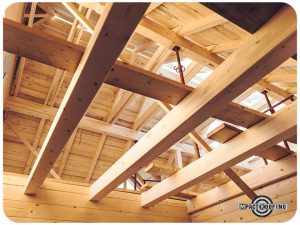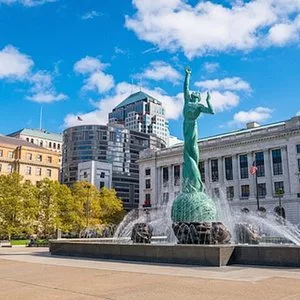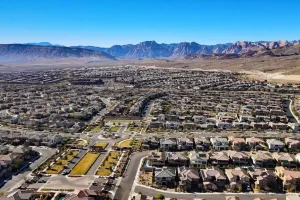What are HDFC Coops?
HDFC Coops, or Housing Development Fund Corporation Cooperatives, are affordable housing options primarily located in New York City. These buildings are owned and operated by their residents, who each own shares in the cooperative corporation. As shareholders, residents have a voice in the building’s management and decision-making processes.
HDFC Coops were established as part of a city initiative to convert distressed or abandoned buildings into affordable housing units. The City sold these buildings to the residents for nominal amounts, often as low as $250 per unit, under the condition that they would make necessary repairs and continue to provide affordable housing for low-income individuals and families.
What is the income limit for HDFC co-ops?
HDFC income restrictions determining eligibility are typically 165% or 120% of the Area Median Income (AMI). AMI varies based on household size. For 2023, the AMI for New York City is $127,100 for a three-person family. Consequently, the income limit for a three-person household in a 165% AMI HDFC is $209,715, while the income limit for a 120% AMI HDFC is $152,520.
The U.S. Department of Housing and Urban Development (HUD) determines AMI annually for each City. Other HDFC cooperatives establish income limits using a formula outlined in Section 576 of the New York Private Housing Finance Law. This formula considers household size, the apartment’s condition and utilities, and the seller’s market price.
Income limits for Section 576 HDFCs have a statutory cap of 165% of AMI. If the income level calculated by the formula exceeds this cap, the HDFC must adhere to it.
How are income limits calculated for Section 576 HDFCs?
Income limits for Section 576 HDFCs are determined by multiplying six (or seven for a household of three or more) by the unit’s maintenance fee, then adding utility costs and 6% of the annual price.
For example, if you are purchasing an HDFC unit with a monthly maintenance fee of $700 and a monthly utility cost of $97, and the seller paid $260,000 for the apartment, you would calculate the annual income limit as follows:
- First, calculate the annual maintenance fee by multiplying the monthly payment by 12: $700 x 12 = $8,400.
- Since your household has three people, you will multiply the annual maintenance fee by seven: $8,400 x 7 = $58,800.
- Next, add the utility costs for the year: $97 x 12 = $1,164.
- Finally, calculate 6% of the annual price: $260,000 x 0.06 = $15,600.
- Now, combine these amounts to determine the income limit: $58,800 (from maintenance) + $1,164 (utilities) + $15,600 (6% of purchase price) = $75,564.
- Therefore, the income limit for this particular apartment is $75,564.
- The purchaser income limit in this example works out to $82,800, as outlined in the steps below:
Where can I find the income limit for an HDFC co-op?
HDFC income limits are defined in a building’s contents, including the Certificate of Incorporation, Bylaws, Offering Plan, and any Deed, Regulatory Agreement, or similar document. Each HDFC must comply with the more restrictive income limit, 165% of the Area Median Income (AMI), or any specific limit outlined in its governing documents.
Can an HDFC make an exception to its income limit?
HDFC income requirements are generally strict. The HDFC co-op board must comply with the statutory income limit of 165% of Area Median Income (AMI) or adhere to any more stringent requirements specified in the contents. While an HDFC co-op may change its income limit by amending these corporate documents, any adjustments will apply to all future buyers.
requirements specified in the contents. While an HDFC co-op may change its income limit by amending these corporate documents, any adjustments will apply to all future buyers.
Can an HDFC building remove its income limit?
An HDFC co-op cannot eliminate its income limit. HDFCs must adhere to a statutory income limit set at 165% of the Area Median Income (AMI) for purchasers. This limit is in Article XI of the Private Housing Finance Law, which governs the incorporation of all HDFC co-ops.
While an HDFC with a relatively low-income limit may be allowed to increase it up to 165% AMI, it is prohibited from obliterating the income cap.
Are there income limits that continue after purchasing an HDFC co-op?
Buyers of HDFC co-ops are not subject to ongoing income limits. The income limits set by HDFC only apply at the time of purchase. After buying an HDFC apartment, don’t sell if your income exceeds the building’s agreements.
Is there a net worth limit when buying an HDFC co-op?
No net worth restrictions exist for buyers of HDFC apartments in NYC. In 2017, NYC considered implementing an asset limit for HDFC buyers as part of a regulatory overhaul, but the plan did not proceed.
Long-term Investment Considerations
HDFC apartments have lower purchase prices and monthly costs than traditional cooperatives, making them an appealing long-term investment for those planning to stay for decades. However, there are significant financial considerations to keep in mind. Due to the resale restrictions imposed on these properties, it can take considerable time to realize capital gains when selling an HDFC cooperative. These restrictions can limit the potential selling price and reduce the opportunity for significant profit.
Therefore, while purchasing an HDFC coop can be a financially savvy move for low-income New Yorkers seeking stable housing, it may not be the best choice for those looking for a high-return investment property.
In conclusion, HDFC cooperatives offer substantial benefits, but it’s essential to consider the potential challenges when deciding whether to qualify for one as a low-income New Yorker. It is advisable to carefully review the cooperative’s rules and restrictions and consult with a real estate professional or attorney to fully understand the implications before making a purchase decision.


